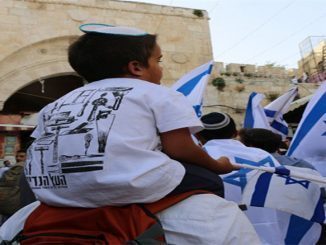
The number of civilians sentenced to death in Egypt’s military courts leapt from 60 in 2016 to at least 112 in 2017, according to two independent rights groups.
Mohamed Morsi, Egypt’s first democratically elected civilian president had been in office for just a year when army chief, General Abdel Fattah el-Sisi, announced his overthrow on state television, along with the suspension of the constitution and the installment of an interim government.
Shortly after Morsi’s removal, the military-backed interim government embarked on a crackdown on Muslim Brotherhood supporters, many of whom who continued to stage counterprotests and express their support for Morsi.
In August 2013, the army and security forces attacked a peaceful sit-in in Rabaa al-Adawiya Square, killing some 1,000 Morsi supporters. Human Rights Watch described this massacre as “one of the largest killings of demonstrators in a single day in recent history”.
And in a widely criticised mass trial, Egypt sentenced hundreds of alleged supporters of the Muslim Brotherhood to death – “the biggest mass sentence given in modern Egyptian history”, according to Amnesty International. The movement, which is Egypt’s oldest, most influential Islamist group, was also banned and had its assets seized before being declared a “terrorist organization” by the government.
The violent repression of Morsi’s supporters sent a stark message to all Egyptians that under the resurgent authoritarian rule of the Sisi regime: Dissent will not be tolerated. Along with the mass imprisonment of over 60,000 people, this has ensured that opposition to the regime has remained limited in the years since.
A few months into office, Sisi passed a law banning demonstrations without prior police approval, leading the protest movement to practically dry up. Such oppressive measures, analysts say, were bound to tighten the noose on the country.
Human rights defenders, civil society groups and NGOs have also been targeted, systematically summoned for questioning, banned from travel and having their assets frozen. A new law, signed in May, 2017 criminalizes the work of many NGOs and places them under the direct surveillance of the country’s security bodies.
– Military trials for civilians
According to the HRW report on military trials, it was recorded that the military courts have tried at least 7,420 Egyptian civilians since October 2014, when Abdel Fattah al-Sisi decreed a major law that expanded military court jurisdiction.
“These military trials have swept up at least 86 children, as well as students, professors, and activists, including individuals who were forcibly disappeared and allegedly tortured,” said HRW.
The use of military courts violates international law, including the 1981 African Charter on Human and Peoples’ Rights, which Egypt ratified in 1984. The African Commission on Human and Peoples’ Rights has stated that civilians should never face military trials.
The Committee on the Rights of the Child, the United Nations body charged with interpreting the Convention on the Rights of the Child, has stressed that “the conduct of criminal proceedings against children within the military justice system should be avoided.” Egypt ratified the convention in 1990, making it one of the earliest state parties to the convention.
Houry said, “The referral of so many civilians to military courts is an attempt by Egyptian authorities to provide a judicial rubber stamp for their crackdown.” He added, “But these military trials – often involving hundreds of civilians at a time – are neither fair nor credible.”
Military trials of civilians in Egypt are inherently unfair because all personnel in military courts, from judges to prosecutors, are serving members of the military who report to the Minister of Defence and do not have the necessary training on rule of law or fair trial standards.
Executions that have already been carried out since Al-Sisi’s military coup
1- Four political prisoners executed after unfair military trial (January 2018)
Egyptian prison authorities executed five inmates on Tuesday, January 2. The prisoners had been sentenced to death, four of them allegedly over a bombing that killed military cadets, according to security officials.
The hangings came days after the execution of 15 inmates allegedly convicted of attacking police and the military in the largest mass execution in Egypt in recent memory.
Four of those executed on Tuesday had been sentenced to death by a military court over a 2015 bombing at a stadium north of Cairo that killed three military cadets. They had been accused of having links with the Muslim Brotherhood. The fifth had been sentenced to death over a criminal matter, the sources said without elaborating.
The convictions in the first instance and appeal trials relied on confessions that the four men who were detained gave when they were subjected to enforced disappearance for periods of between four and 93 days, during which they said they were subjected to torture and other ill-treatment by the National Security Agency (NSA) of the Ministry of Interior. The convictions also relied on investigations carried out by the NSA that were deeply flawed.
The High Military Court and the Court of Cassation in Egypt have increasingly been upholding death sentences since April this year, often based on confessions obtained under torture and during periods of enforced disappearance.
On 19 June 2017, the High Military Court upheld the death sentences against Lotfy Khalil, Sameh Abdalla, Ahmed al-Sehemy and Ahmed Salama, all of whom were present in court.
Based on Articles 111-114 of the code of military justice, defendants can appeal their verdict before the Military Appeals Office within 15 days if they are able to present major due process or procedural errors. However, lawyers told Amnesty International that the Military Prosecution refused to give the lawyers an official copy of the verdicts issued by either the first instance military court or the High Military Court to enable them to file such an appeal, despite this being a requirement under Egyptian laws. The lawyers also said that they had filed a submission to the State Council requesting Egypt’s Abdel-Fattah Al-Sisi not to ratify the sentences, as well as submitting a request directly toAl-Sisi to pardon the defendants or reduce their sentences.
Families and lawyers of the defendants had told Amnesty International that the four men were held incommunicado under conditions of enforced disappearance for periods ranging between four days to 93 days. Further, according to lawyers, the NSA falsified the arrest dates of the men in the official investigations to cover up the period they had spent under conditions of enforced disappearance outside of any judicial oversight. This is a major violation under Egyptian laws and should have led to the dismissal of the case.
The NSA held the men incommunicado in places of detention in Kafr Al-Sheikh city that are run by the agency as well as inside the headquarters of the NSA in Cairo. Their families had sent postal telegrams to the Military and Public Prosecution and inquired about their whereabouts with officials at both the NSA and at different police stations in Kafr Al-Sheikh city, but all denied that the men were in their custody.
Despite the repeated requests by the defendants and their lawyers to be transferred to the Forensic Medical Authority to be medically examined, both the Military Prosecution and the military court refused to order their transfer or open an investigation into the torture allegations. Instead, the court relied on the confessions the men said were obtained under torture and during their period of enforced disappearance to sentence them to death.
2- The Egyptian regime executes 15 political prisoners (December 2017)
Egyptian authorities on Tuesday, December 26, executed 15 political prisoners. They were imprisoned on charges of attacks on security forces in the restive Sinai Peninsula, police officials said.
The men were hanged in two jails where they had been held since military courts sentenced them for the attacks in the Sinai, where jihadists are waging an insurgency, the officials said.
It was the largest mass execution carried out in the North African country since six convicted jihadists were hanged in 2015.
The hangings come a week after the Islamic State group attacked a helicopter with an anti-tank missile at a North Sinai airport as the country’s defence and interior ministers were visiting.
The ministers were unhurt in the attack but an aide to the defence minister was killed along with a pilot.
In November, suspected ISIS gunmen massacred more than 300 Muslim worshippers at a mosque in Sinai associated with Sufi Muslims ISIS views as heretical.
The jihadists have killed more than 100 Christians in church bombings and shootings since December last year.
After the mosque massacre, Abdel Fattah al-Sisi instructed his military chief of staff to quell the attacks in three months using “brutal force”.
3- Egypt executes six men allegedly for killing soldiers after unfair trial (May 2015)
Egypt executed on May 18, 2015 six men allegedly convicted of carrying out an attack on a checkpoint in the Sinai that killed several soldiers, despite evidence at least three of the accused were already in detention at the time of the assault.
Human rights groups called for a retrial for the six men after the death sentence was upheld on March 24, describing the military court processes as “flawed” and “grossly unfair”.
They say the death penalty is now the Egyptian authorities’ “favorite tool” for purging political opposition in a country that remains deeply divided since the overthrow of former dictator Hosni Mubarak in February 2011.
The six men who were executed – state media reported they were hanged – were part of a group of nine convicted of participating in attacks on security forces and killing two officers in 2014, Human Rights Watch said.
Prosecutors said they were members of the Sinai peninsular-based Ansar Beit al-Maqdis jihadi group, which late last year pledged allegiance to Islamic State.
The sentence was carried out by hanging in a Cairo jail, according to officials.
But human rights groups had appealed for a stay of execution, saying two defendants had been in custody at the time.
Amnesty International said the men underwent a “grossly unfair” trial and that the only witness during the hearings was a secret police officer.
Their execution came a day after a court sentenced President Morsi and more than 100 others to death for their alleged role in prison breaks and attacks on police during the 2011 uprising against former president Hosni Mubarak.
Hundreds of Islamists have been sentenced to death in mass trials since Morsi’s overthrow, but only seven, including the six on Saturday, have been executed.
Another Islamist, accused of involvement in the murder of anti-Morsi protesters after his ouster, was hanged in March.
4- Egypt carries out first death sentence after mass trials of Morsi supporters (March 2015)
An Egyptian man has been executed for allegedly pushing a teenager from a building, the first time that Egypt has enacted any of the death sentences given to hundreds of people accused of taking part in the unrest that followed the removal of Mohamed Morsi as president in 2013.
Mahmoud Ramadan was hanged for his alleged role in the murder of a young Morsi critic in July 2013 during clashes between Morsi’s supporters and opponents. More than 50 others have been jail for more than 15 months for their alleged involvement in the same case.
At least 720 alleged Morsi supporters have been sentenced to death for their claimed role in Islamist-led violence in 2013, including the head of Muslim Brotherhood, Mohamed Badie. Ramadan’s is the first to be carried out. The execution follows a period in which Egypt’s interior ministry was felt to be doing little to curb an increase in militant activity.
Ramadan later denied throwing the teenager from the roof, a spokesman for Amnesty International said.
As a result, Ramadan’s lawyers asked the prosecution to produce more witnesses to prove his involvement in the murder itself, but the request was ignored. They also questioned why only Islamists were being tried for their crimes that day, arguing that Morsi supporters were also killed in revenge violence.
Amnesty said the execution should not have gone ahead, citing alleged irregularities in the court proceedings. “The execution happened after an unfair trial where not all the [testimonies] were included and where the conviction depended on very fragile evidence,” said Mohamed Elmessiry, Amnesty’s Egypt researcher. “The execution should not have happened and a retrial should have been ordered.
Egypt under Sisi is even worse than it was under Mubarak
On virtually every indicator, Egypt is worse off today than it was under Mubarak. The security situation is far worse, the economy is worse, the levels of repression are far higher and the ability of the government to deliver basic goods and services has also declined.
The awfulness of General Abdul-Fattah al-Sisi is becoming scarily clearer by the day. Lawlessness and police abuse of citizens is the norm. Disappearances, common. Torture, a tool of choice.
All this is done in the name of fighting terrorism and an Islamic-based armed rebellion. But of course, as befits a venerable pattern of dictatorship, there is always time to repress and frighten any regime critics, real or imagined.
The brazenness of secret police abuse in Egypt makes this wave of government repression especially frightening. It’s as if, having been driven off the streets by pro-democracy demonstrators in 2011, police are determined to remind Egyptians not only that they are back, but back with full impunity of action. Human rights activists inside and outside Egypt have decried the chronic abuse of the authorities, whose plainclothes agents now roam Cairo’s streets.
Gone are the days when online activism could organize protest or express dissent. Instead of shutting down the Internet the way Hosni Mubarak did briefly during Arab Spring, Sisi has marshaled the Internet to spy on and prosecute dissidents. His police collect bulk data and courts harshly sentence online critics.
Several activists involved in the 2011 efforts to oust Hosni Mubarak have been jailed among the thousands of Islamists put away. Not sure what this has to do with Sisi’s war on terror.
The West is mostly willing to ignore what goes on in Egypt. The old formula of partnering with dictatorship to put down Islamists reigns supreme. The possibility that Sisi is driving Egyptians into the hands of terror groups has apparently crossed nobody’s mind.



